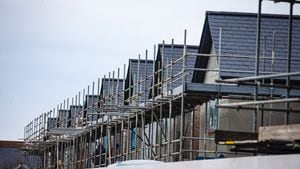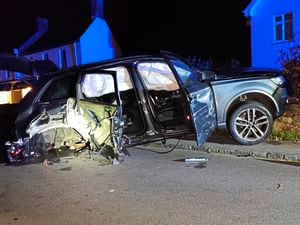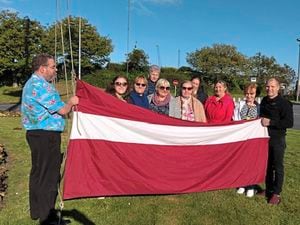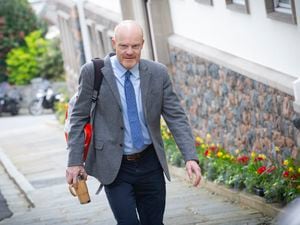‘Get building’ call to developers after vote to suspend GP11
Property developers have been challenged to speed up house-building after winning their battle against planning policy GP11.

Developers had urged deputies for years to free them of the GP11 requirement for larger developments to include social housing – and yesterday the States voted to suspend the policy for five years.
Policy & Resources president Lyndon Trott, who led the proposal for the suspension, urged developers to prove that GP11 had been holding them back from building hundreds of homes needed to meet demand.
‘The States’ direction to the Development & Planning Authority is clear by a large majority. GP11 has failed and will soon be a thing of the past,’ said Deputy Trott.
Listen to our Shorthand States round-up from Thursday’s debate
‘This Assembly now watches with interest the actions of developers over the next few months because actions speak louder than words.’
Deputy John Dyke, who led a requete which triggered the States debate, spoke of ‘sunlit uplands’ following the suspension of GP11 and predicted ‘a brighter future’ for people in Guernsey hoping to buy or rent a home they can afford, after house-building in Guernsey had slumped in recent years.
Politicians responsible for social housing claimed that GP11 allowed the Guernsey Housing Association to purchase sites they might otherwise have been denied. But Neil Inder was certain GP11 had failed.
‘Developers have been telling us this for years. They were warning back in 2016 not to adopt GP11,’ he said.
‘This is an eight-year running sore. GP11 hasn’t worked. Since 2016, permissions have collapsed.’
Deputy Inder admitted there was ‘an element of calling their bluff’ by backing developers’ demands to remove GP11 and said the onus was now on them to accelerate private house-building.
After losing an amendment to suspend GP11 for only two years, Environment & Infrastructure president Lindsay de Sausmarez backed the five-year suspension, but warned developers who wished to take advantage of the suspension to prepare planning applications quickly.
Deputy de Sausmarez claimed that ‘in reality, this is a one-year suspension’ because the DPA may propose a replacement for GP11 as part of a review of the Island Development Plan due to go to the States next year.
Peter Ferbrache disagreed. ‘GP11 is going to die,’ he predicted, as he challenged developers to make the most of their freedom from its constraints.
‘This is a small, small step in the right direction and it gets rid of developers saying they can’t do it because of GP11,’ he said.
‘What I’d like them to do tomorrow is put something out saying “GP11 has now gone and we’re going to build 300 houses, 500 houses or whatever”.’
Deputy Ferbrache claimed the States had ‘talked and talked and talked’ without taking action to meet increasingly desperate demands for housing while average prices had risen from four times average earnings to more than 15 times over the past 40 years.
‘Ordinary Guernsey people, without the bank of mum and dad, cannot buy houses,’ he said.
‘The Guernseyman and woman wanted their plot of land to build a house and own their modest property, bring up their kids, have a dog or a cat and live their lives. That has been denied them because of the pressure of economics, supply and demand.’
Deputy Sasha Kazantseva-Miller hoped the suspension of GP11 would help ‘unleash a programme of house-building’.
She also disputed claims that private developers should be expected to build social housing and reminded deputies that development profits were taxed at 20%.
‘We don’t ask the Co-op or Waitrose to ring-fence 30% of their stores to be available for free products for those who cannot afford food,’ she said.
The propositions to suspend GP11 for five years were approved by 33 votes to three.





